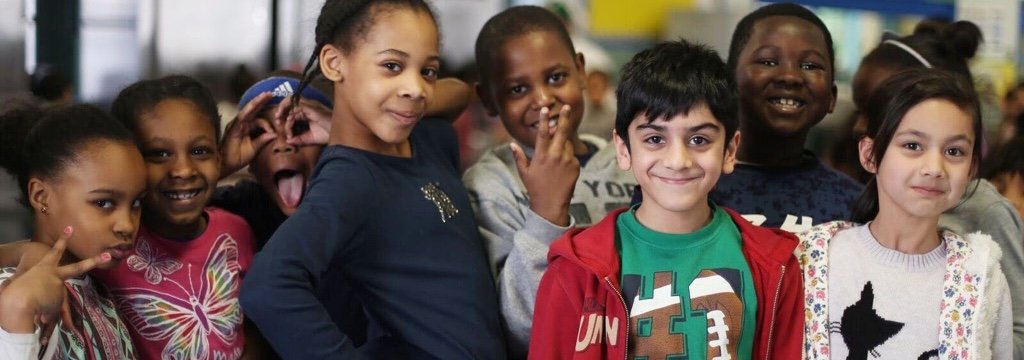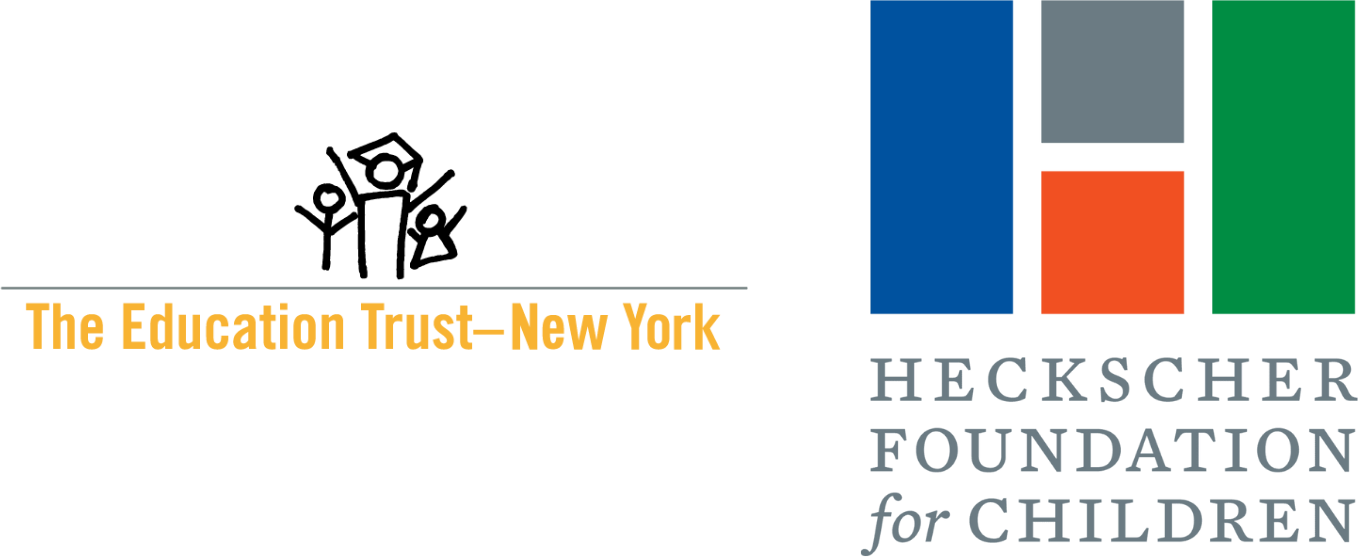Frank Sinatra School of the Arts High School
Grades: 9-12Our Insights
What’s Special
Top-notch, conservatory-style arts instruction; spacious, modern facilities
The Downside
Limited foreign language and elective classes
Frank Sinatra High School is a vibrant, conservatory-style arts school filled with motivated and talented students who are admitted to one of six studios: dance, drama, instrumental music, vocal music, fine arts, and film and media. The school demands a high level of commitment from its students, who, on a typical day, take a full load of academic classes in addition to two or three periods of art classes and then spend a few hours after school rehearsing for a performance, working on projects, or participating in sports or internships.
Frank Sinatra occupies a spacious, modern building filled with professional-grade equipment and facilities, including a large theater named for the schools founder, Tony Bennett. In addition to ongoing support from Bennetts foundation, Exploring the Arts, students benefit from an extensive roster of partnerships with organizations such as the New York Philharmonic, Shubert Foundation, Kaufman-Astoria Studios, American Ballet Theater, Tribeca Film Festival, art conservatories such as Julliard and Manhattan School of Music and several museums and universities.
Art is everywhere--in the air, on the walls and even in the stairwells, where some students steal away for a few minutes to practice their instruments. The atmosphere is relaxed and students seemed genuinely happy and engaged in both their studio and academic classes.
All music classes, instrumental and choral, serve mixed grades. During our visit we heard the symphonic orchestra rehearse Beethoven's "Symphony No. 8 in F Major" and the choral ensemble perform portions of Gabriel Faures "Requiem."
In the black box theater, a drama teacher led his class through some yoga warm-up exercises, while in the Tony Bennett Theater, other theater students worked on the sound, lighting and stage sets. Elsewhere a group of film students were fine-tuning their placement of b-rolls (cutaway footage), voice-overs and music to enhance their films.
In the large art studios, students work with all types of media ranging from charcoal sketches and oil paintings to digital architectural designs and ceramics made in the schools kilns. In dance classes, pianists accompany students as they work through their warm-ups and routines.
Teachers do an impressive job of weaving art and writing into instruction in academic subjects. In physics students show how force and motion make things work by creating 3-D models that demonstrate these principles, such as carousels (centripetal force) and elevators (counter weight impact on velocity). In living environment, they write and illustrate children's books on cell structure. In statistics, they research and write about the lives and contributions of important women in mathematics.
English teachers assign a nice range of literature including novels, plays and memoirs and tie them into studies in other subjects. For instance, 10th-graders read Night, by Elie Wiesel in English at the same time they study World War II in global history. Teachers also emphasize the writing process in addition to teaching how to construct an argument or an essay. In a freshman class we observed, students were completing a free write exercise, jotting down whatever came to mind, to help them cultivate their writer's voice.
While academic instruction is strong, there are some trade-offs. As an art school, Sinatra is only required to offer one year of a foreign language, although it offers two years. Also, budget and time constraints make it hard to offer many sections of elective and college-level courses. Advanced Placement courses are offered in some subjects and there are a few elective classes such as statistics and forensics. Students can also take courses at LaGuardia Community College.
Gideon Frankel, a former film teacher and assistant principal at the school, became principal after the school's longtime principal, Donna Finn stepped down in 2017.
Sinatra is not a pressure cooker, but students still feel the weight of balancing art and academic commitments. To help keep tabs on students' social and emotional needs, the school provides a range of supports, all concentrated in the large guidance suite, where students can find counselors to offer help and address problems.
A full-time college counselor runs the college office, also located in the guidance suite. Nearly all students graduate on time, and most go on to college. Roughly one-third of graduates pursue careers in the arts, the rest pursue a full range options including engineering and medical professions.
In addition to attending arts schools such as Parsons, School of Visual Arts, Rhode Island School of Design and Julliard, many attend CUNY and SUNY and private colleges.
SPECIAL EDUCATION: There are ICT classes and SETSS. The school's guidance suite provides work space for speech, physical and occupational therapists and the school psychologist.
(Laura Zingmond, March 2015; updated, 2018)
Get more from InsideSchools
School Stats
Academics
Students
Race/Ethnicity
Safety & Vibe
Faculty & Staff
Teachers’ Race/Ethnicity
Advanced Courses
Calculus
Computer Science
Physics
Advanced Foreign Language
AP/IB Arts, English, History or Social Science
AP/IB Math or Science
Music
College Readiness
Programs & Admissions
From the 2024 High School DirectoryFilm and Media Arts (Q40F)
Program Description:
Study includes text analysis, film as a cultural and historical document, analysis of artist work; courses in video production, film theory and history, industry practices, and legal issues. Students have access to state-of-the-art digital technology.
Fine Arts (Q40J)
Program Description:
Intensive study of art (theory, production, history, assessment); museum and gallery visits, student exhibitions, visiting artists. Courses-Foundation, 2-D and 3-D Design, Painting, Sculpture, Communication Arts, Print-Making, Portfolio, Digital Photography, and AP Art History.
Instrumental Music (Q40K)
Program Description:
Small group instruction on orchestral and band instruments; jazz and concert bands, advanced wind ensemble, string and symphonic orchestras, chamber music of all instrument families, theory, ear training, music history and keyboard harmony.
Vocal Music (Q40L)
Program Description:
Students perform in the Concert Choir, Chorale, Chamber Singers, musical theater, Great American Songbook ensemble, opera workshop and participate in cabaret; curriculum includes voice training, music theory, keyboard, sight singing, diction, and audition preparation.
Dance (Q40M)
Program Description:
Ballet, Modern Dance, Dance History, Choreography, and dance criticism courses; Jazz, Tap, Ballroom Dancing, Kinesiology, Anatomy, Career Management, and Dance Production courses; students attend live performances and take part in school productions.
Drama (Q40N)
Program Description:
A four-year course of study that includes acting technique, scene study, speech for actors, dramatic writing, and course work in performing Shakespeare. The Drama Studio creates main-stage productions each year.
Offerings
From the 2024 High School DirectoryLanguage Courses
Spanish
Advanced Courses
Algebra II (Advanced Math), AP Art History, AP Biology, AP Calculus AB, AP Computer Science A, AP Computer Science Principles, AP English Language and Composition, AP English Literature and Composition, AP Environmental Science, AP Music Theory, AP Research, AP Seminar, AP Studio Art - 2D, AP United States Government and Politics, AP United States History, AP World History: Modern, Calculus (Advanced Math), Chemistry (Advanced Science), Physics (Advanced Science), World Languages (Advanced World Languages)
Boys PSAL teams
Baseball, Basketball, Outdoor Track
Girls PSAL teams
Basketball, Outdoor Track, Soccer, Softball, Tennis, Volleyball
Read about admissions, academics, and more at this school on NYCDOE’s MySchools

Contact & Location
Location
35-12 35Th Avenue
Queens
NY
11106
Trains:
,
to Steinway St;
,
to 36 Av-Washington Av
Buses: Q101, Q102, Q104, Q66
Contact
Other Details
This school is in its own building.
Was this information helpful?
Get more from InsideSchools
You may also like …
Energy Tech High School
Queens, NY 11106
Long Island City High School
Queens, NY 11106


Comments